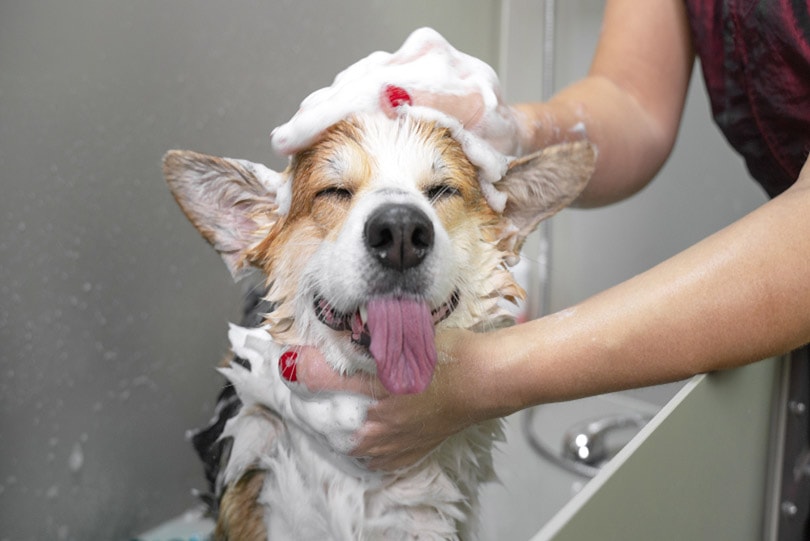How Often Should You Bathe a Corgi? Our Essential Care Guide
Updated on

All dogs get dirty at least occasionally. After all, they love outdoor adventure, and they always seem to find mud puddles on the ground. Corgis are similar to most other dogs in that there is no exact bathing schedule to stick to when it comes to keeping these pups clean. Here is what you should know about when to bathe your Corgi and how to provide an effective bath when the time comes.
Bathing Frequency: It Depends on the Corgi
There is no set schedule to stick to when it comes to bathing your Corgi. How often you must bathe your Corgi depends on what they do, where they go, and how open they are to getting dirty. Some Corgis try to avoid extra-dirty situations, while others have no problem running through mud or splashing around in filthy puddles.
If your Corgi frequently stays home or does not have an opportunity to get too dirty while outside, you don’t need to bathe them until they get stinky enough that you can smell them or their coat feels dirty to the touch. For some dogs, baths are needed only once every few months. For other dogs, monthly, bi-weekly, or even weekly baths might be necessary.
If you want to bathe your Corgi on a schedule regardless of their activities or extent of dirtiness, we recommend doing so about once every 2 months. This should be enough to keep them looking and smelling clean but not enough to make their coat dry or itchy, which can happen with too much bathing, as bathing dries out the skin.

How to Properly Bathe Your Corgi
Bathing your Corgi does not have to be complicated. You can bathe your dog in the bathtub or outside in a kiddie pool or even at the hose spigot. Err on the side of cool water, as Corgis can handle it better than hot water. Utilize a natural dog shampoo to soap your dog down, and lightly massage the shampoo into their coat.
To get rid of dead, loose hair, utilize a slicker brush or fine-toothed comb to “rake” your dog’s coat from head to toe. Thoroughly rinse away the shampoo until the water is completely clear, and then drain the bathtub or turn off the hose. Let your dog shake excess water away, then use a towel to dry their coat off as much as possible before letting them cruise around the house again.
How to Groom Your Corgi Between Baths
Grooming your Corgi between baths will help keep them clean and reduce their shedding as time goes on. All that’s necessary is thorough brushing a couple of times a week to keep a Corgis’ coat in good shape. Brushing will help rid your dog’s coat of loose hair, dirt, and debris. You can clean your dog’s ears with a damp washcloth or cotton balls every couple of weeks to ensure that dirt doesn’t build up inside them. Daily walks outside should keep their nails nice and trimmed so you don’t have to do it yourself.
Conclusion
Corgis are fun little dogs that love to adventure outdoors. Therefore, they can get dirty and require a bath, at least once in a while. The good news is that they don’t need baths regularly to stay clean looking and smelling. Regular brushing can go a long way in keeping your Corgi nice and clean between occasional baths.
Featured Image Credit: Masarik, Shutterstock













